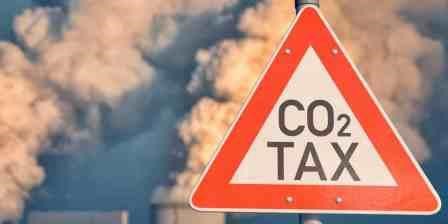

The EU Commission’s draft proposal which is now available to a global media agency reveals that the European Union will introduce so-called carbon import tariffs on aluminium among other commodities as a part of the initiative fight against climate change. This is purposeful in regards to safeguard European companies from CO2 -intensive cheap imports. The full effect of the taxes could initiate from 2026.

Since the community has set itself more aggressive climate targets that make production more expensive, imports from countries without such conditions are to be subject to CO₂ border tariffs. The exporters from these countries would then have to buy CO₂ certificates, for example, that corresponds to the number of greenhouse gases emitted for their product. Their price should be based on what European industry has to pay for emitting one ton of CO₂.
In Germany, the costs of climate protection are to be offset by higher CO2 prices. Since the beginning of the year, a CO2 price of € 25 / t has been in effect here within the framework of national emissions trading. Mineral oil companies, for example, have to pay this by buying so-called emission rights for the fuels they produce using certificates. They pass the costs on to the consumers - and if the Greens want them to pay even more for fuel, this is unpopular in Germany.
The EU Commission wants to present a specific proposal in mid-July. It is the subject of controversy within the EU but also with trading partners around the world. According to the EU key points, it is envisaged that states can offset the costs of climate protection in their home country against the border tax. Germany is basically behind the idea but hopes that the plan will be enough to encourage other countries to participate more in the fight against climate change. However, the plan is likely to be difficult to implement because of the rules of the World Trade Organization (WTO).

The statement released by European Aluminium, the voice of the entire aluminium industry in Europe, as quoted by Gerd Götz, Director General in response to the leaked draft said: “We are particularly concerned by the Commission’s reported intention to include aluminium in the pilot sectors of the Carbon Border Adjustment Mechanism (CBAM). We have repeatedly stated that we do not wish to be part of the measure, as we cannot see how it could effectively reduce carbon leakage in our sector, given the proposed removal of free allowances and indirect cost compensation. A thorough revision of current carbon leakage measures for the entire phase 4 of the ETS was only recently completed, defining a long-term solid regulatory framework for planning and investment in our sector, which must not be compromised.”
“We are keen to contribute to the EU’s climate ambition and have already demonstrated great achievements so far, particularly in the new digital and green area. However, the Commission also needs to understand that such efforts should not be undermined by external pressure when it comes to adequately address carbon leakage and the risk of circumvention or source shifting.”
“There is no doubt that to address these challenges, a CBAM would have to cover all aluminium products while also being applied alongside the existing carbon leakage measures. We cannot see how this could be possible. Let’s not forget that we have already lost one-third of Europe’s aluminium capacity as a result of well-intentioned but poorly or uncoordinated executed measures in the past; a capacity which is three times cleaner than almost all of the new entry replacing it and covering incremental global demand.”
Responses








